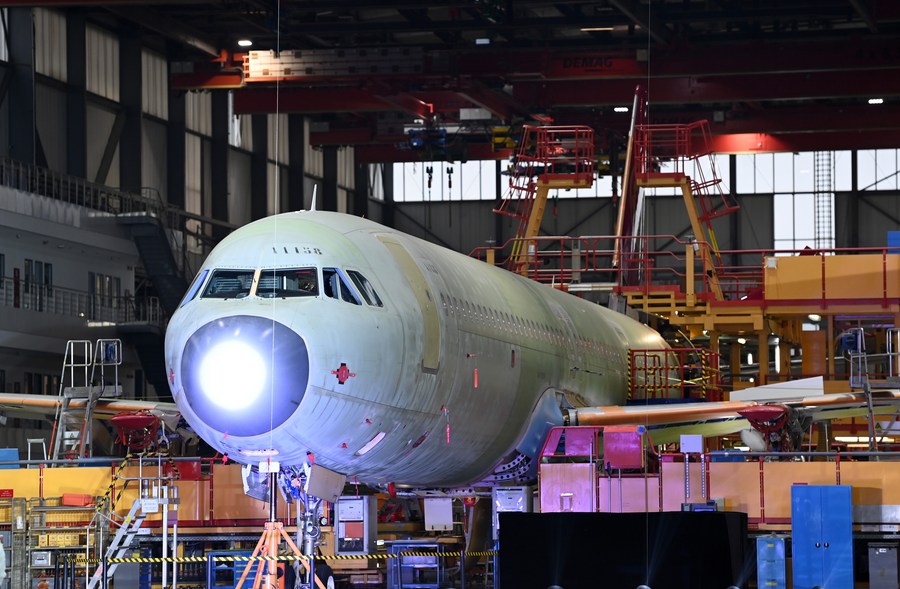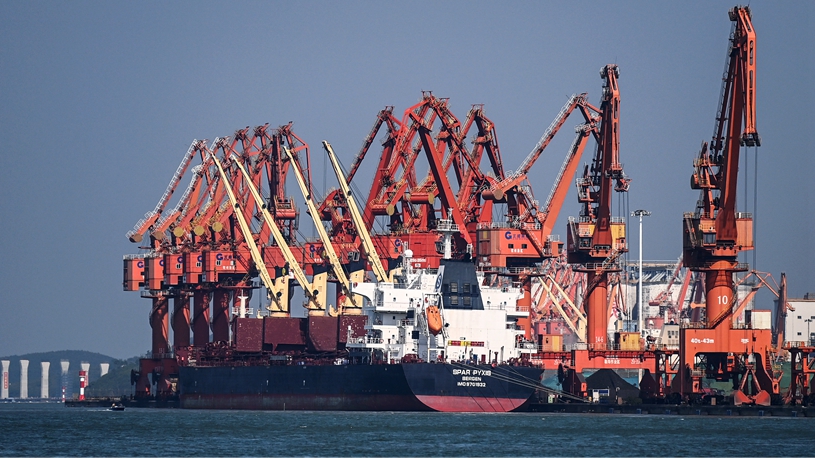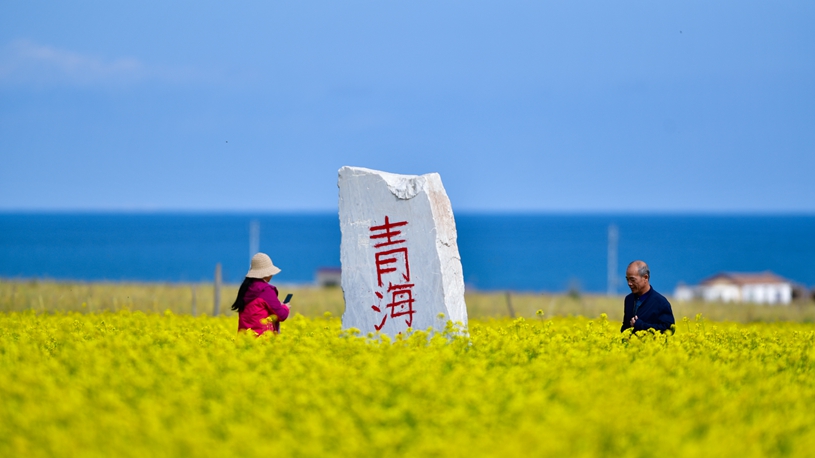
The first Airbus A321 aircraft is produced at the Final Assembly Line Asia (FALA) facility in north China's Tianjin on Nov. 9, 2022. (Xinhua/Zhao Zishuo)
TIANJIN, Nov. 10 (Xinhua) -- European aircraft manufacturer Airbus started to produce A321 aircraft at its Final Assembly Line Asia (FALA) facility in north China's Tianjin on Wednesday -- confirmation that China is capable of delivering all models of Airbus' A320 family aircraft.
"The A321 is currently one of the most popular aircraft in the A320 family," said George Xu, CEO of Airbus China. "This is our latest step in China, showing our unwavering support for the Chinese market."
The first A321 aircraft assembled in Tianjin is expected to be delivered early next year.
At present, the company's backlog of A321 aircraft accounts for around 60 percent of its total global backlog for the A320 family aircraft range.
Able to seat more than 200 passengers, the single-aisle A321 model is capable of flying long routes matching the capacity of a wide-bodied aircraft, but at more economical operational costs.
FALA was put into operation in 2008, becoming the third A320 family assembly site for Airbus globally, following Toulouse, France and Germany's Hamburg. Airbus delivered the 600th A320 family aircraft assembled at FALA in September this year.
"The global aviation industry has been hit hard by COVID-19, but the Chinese market has shown strong resilience," Xu said, adding that the resilience stems from the stability and prospects of China's market and policies.
According to China's 14th Five-Year Plan (2021-2025), the country's civil aviation sector would handle 930 million passenger trips and 9.5 million tonnes of cargo and parcels annually by 2025.
Countries and regions linked to China via air routes will exceed 70 by 2025, and more than 50 of them will be partners under the Belt and Road Initiative, the plan stated.
China's civil aviation industry handled approximately 34 million passenger trips in July, surging 54.5 percent month on month, said Zhu Tao, an official with the Civil Aviation Administration of China (CAAC), adding that the country's total air transport turnover hit 6.8 billion tonne-km in July, rising 27.5 percent month on month.
"Airbus has sent positive signals to China by kicking off production of A321 aircraft," said Zhang Yi, associate professor at the Economic and Management College of the Civil Aviation University of China.
Zhang said he believes it shows the confidence and optimism of Airbus and other European companies about the rapid recovery and development of Asia's air transport industry.
China's aviation market has enormous potential, as the number of annual air passenger trips per capita in the country is less than 0.5 despite its large population, while the rate is around 2.5 for developed countries.
What's more, China has continued to iron out infrastructure inequality and plans to build more airports in the country's western regions.
"There are 2,100 Airbus aircraft among the roughly 4,000 commercial aircraft in the Chinese market, which is more than 50 percent of the total," said Xu, adding that China will continue to be the world's largest market for new aircraft over the next two decades.
The advancement of China's civil aviation industry chain has facilitated Airbus' expansion in the country, he said.
Global upstream and downstream aircraft production enterprises have settled in Tianjin, thanks to the city's favorable local policies. The Dongjiang Free Trade Port Zone in Tianjin has developed into the world's second-largest aviation leasing hub, after Ireland, in terms of overall asset volume.
In July, Dongjiang saw the 2,000th aircraft on lease since the aviation leasing business began in the free trade zone in 2009. Aircraft leasing is increasingly becoming the preferred choice in the global civil aviation industry. ■












